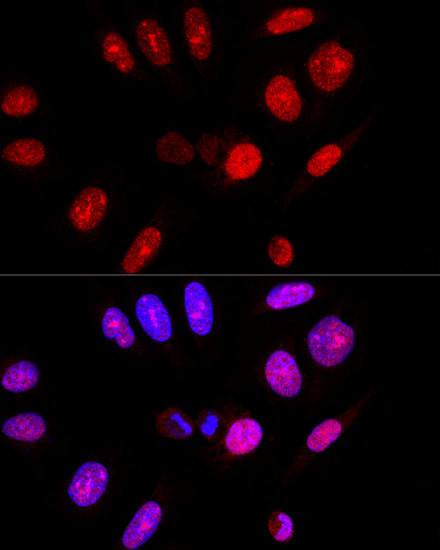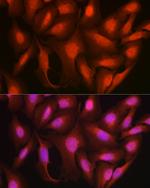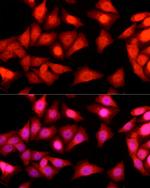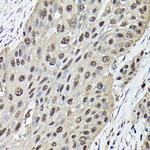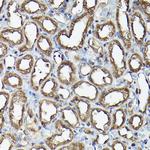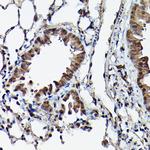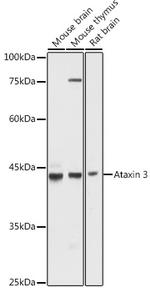Search Thermo Fisher Scientific
Product Details
PA5-88538
Species Reactivity
Host/Isotype
Class
Type
Immunogen
Conjugate
Form
Concentration
Purification
Storage buffer
Contains
Storage conditions
Shipping conditions
RRID
Product Specific Information
Immunogen sequence: MESIFHEKQE GSLCAQHCLN NLLQGEYFSP VELSSIAHQL DEEERMRMAE GGVTSEDYRT FLQQPSGNMD DSGFFSIQVI SNALKVWGLE LILFNSPEYQ RLRIDPINER SFICNYKEHW FTVRKLGKQW FNLNSLLTGP ELISDTYLAL FLAQLQQEGY SIFVVKGDLP DCEADQLLQM IRVQQMHRPK LIGEELAQLK EQRVHKTDLE RVLEANDGSG MLDEDEEDLQ RALALSRQEI DMEDEEADLR RAIQLSMQGS SRNISQDMTQ TSGTNLTSEE LRKRREAYFE KQQQKQQQQQ QQQQQGDLSG QSSHPCERPA TSSGALGSDL GDAMSEEDML QAAVTMSLET VRNDLKTEGK K; Positive Samples: MCF7, SW480, Jurkat, A-549, DU145; Cellular Location: Nucleus matrix
Target Information
Machado-Joseph disease is an autosomal dominant neurologic disorder, and is now known to be the same as previously described spinocerebellar ataxia-3. MJD protein (Ataxin-3) contains (CAG)n repeats in the coding region, and the expansion of these repeats from the normal 13-36 to 68-79 is the cause of Machado-Joseph disease. There is a negative correlation between the age of onset and CAG repeat numbers. This protein interacts with key regulators (CBP, p300 and PCAF) of transcription and represses transcription, and also acts as a histone-binding protein that regulates transcription. MJD is a deubiquitinating enzyme.
For Research Use Only. Not for use in diagnostic procedures. Not for resale without express authorization.
References (0)
Bioinformatics
Protein Aliases: ataxin 3 variant an; ataxin 3 variant ao; ataxin 3 variant at; ataxin 3 variant e; ataxin 3 variant h; ataxin 3 variant m; ataxin 3 variant r; ataxin 3 variant ref; ataxin 3 variant y; Ataxin-3; ataxin3; josephin; Machado-Joseph disease (spinocerebellar ataxia 3, olivopontocerebellar ataxia 3, autosomal dominant, ataxin 3); Machado-Joseph disease (spinocerebellar ataxia 3, olivopontocerebellar ataxia 3, autosomal dominant, ataxin 3) homolog; Machado-Joseph disease protein 1; Machado-Joseph disease protein 1 homolog; olivopontocerebellar ataxia 3; spin; Spinocerebellar ataxia type 3 protein
Gene Aliases: 2210008M02Rik; AI463012; AI647473; AT3; ataxin-3; ATX3; ATXN3; JOS; MJD; MJD1; Rsca3; SCA3
UniProt ID: (Human) P54252, (Rat) O35815, (Mouse) Q9CVD2
Entrez Gene ID: (Human) 4287, (Rat) 60331, (Mouse) 110616

Performance Guarantee
If an Invitrogen™ antibody doesn't perform as described on our website or datasheet,we'll replace the product at no cost to you, or provide you with a credit for a future purchase.*
Learn more
We're here to help
Get expert recommendations for common problems or connect directly with an on staff expert for technical assistance related to applications, equipment and general product use.
Contact tech support
